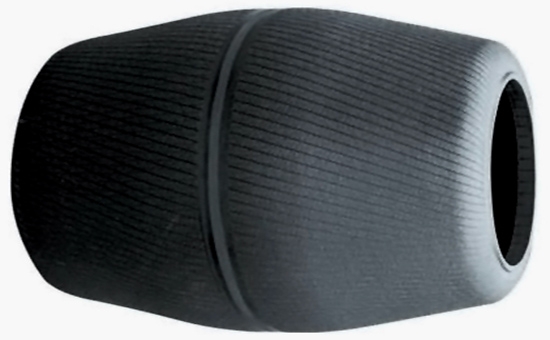
In tire production, chlorinated butyl reclaimed rubber can be used not only for tubeless tire innerliner and tire sidewall rubber, but also for the production of tire inner tubes and vulcanization bladder; rational use of chlorinated butyl reclaimed rubber can maintain various Under the premise of the quality of similar tire products, it effectively reduces the cost of raw materials. How to use chlorinated butyl reclaimed rubber in tire inner tube is more appropriate? What are the advantages of using chlorinated butyl reclaimed rubber in the production of vulcanization bladder?
3. Tire inner tube
The tire inner tube is a circular elastic tube with tire valve that maintains the internal pressure of the tire. It has strict requirements on the air tightness, heat resistance, elasticity, and aging resistance of the rubber used, especially low air permeability and heat resistance. The main raw material is butyl rubber 2YLYY610. In actual production, chlorinated butyl rubber has better heat resistance than butyl rubber. The use of chlorinated butyl rubber in the production of butyl innertubes can significantly improve the problem of thermal expansion of the product.
Combine chlorinated butyl reclaimed rubber and chlorinated butyl rubber in an appropriate ratio. Use an effective vulcanization system and zinc oxide. The vulcanized rubber has good heat resistance, compression deformation resistance, and aging performance, and low heat generation during the use of the inner tube. It is recommended to use semi-reinforced carbon black, fast-pressed black and fine particle carbon black for the reinforcement filling system to improve the processing performance, resilience and flex resistance of the inner tube product, or directly use carbon black N660; use naphthenic oil for softening , Coordinate the relationship of mechanical strength by adjusting the amount of rubber oil and reinforcing agent.
4. Vulcanizing bladder
The vulcanization bladder is the vulcanization bladder used in the tire production process, the water tire, and the vulcanization encapsulation rubber sleeve used in the retreading process. It has the heat resistance, steam resistance, hot water resistance, flexural resistance and resistance of the rubber compound. Tear performance requirements are high, especially high temperature tear resistance. The traditional vulcanization bladder uses butyl rubber as the raw material and uses resin to vulcanize, but the vulcanized rubber is very stiff and difficult to use and install; the use of chlorinated butyl rubber can overcome this shortcoming.
Chlorinated butyl rubber is usually used in combination with a small amount of natural rubber to prepare vulcanization bladder; proper use of chlorinated butyl reclaimed rubber can effectively reduce the cost of raw materials. In actual production, mixing a small amount of natural rubber can overcome the problem of softening of chlorobutyl vulcanization capsules under long-term heat and improve the adhesion of molding. The vulcanization system uses zinc oxide with alkylphenol disulfide and accelerator DM to improve the heat resistance, steam resistance, and hot water resistance of the chlorinated butyl vulcanization bladder. Reinforcing filling system can choose high wear-resistant carbon black and clay.
Chlorinated butyl reclaimed rubber is widely used in tire production. The application and dosage of chlorinated butyl reclaimed rubber in different occasions are very different. Rubber product manufacturers need to reasonably determine the usage and dosage of chlorinated butyl reclaimed rubber according to actual needs. On the premise of ensuring product quality to reduce the cost of raw materials, the editor will have the opportunity to discuss with you the specific application of chlorinated butyl reclaimed rubber in innerliner, inner tube, sidewall or vulcanization bladder.
Exclusive original article [commercial authorization] reprint, excerpt and excerpt in any form are prohibited without written authorization. Focus on Hongyun rubber: learn the process formula and raw material technology of producing rubber products from recycled rubber to help you reduce costs and increase profits